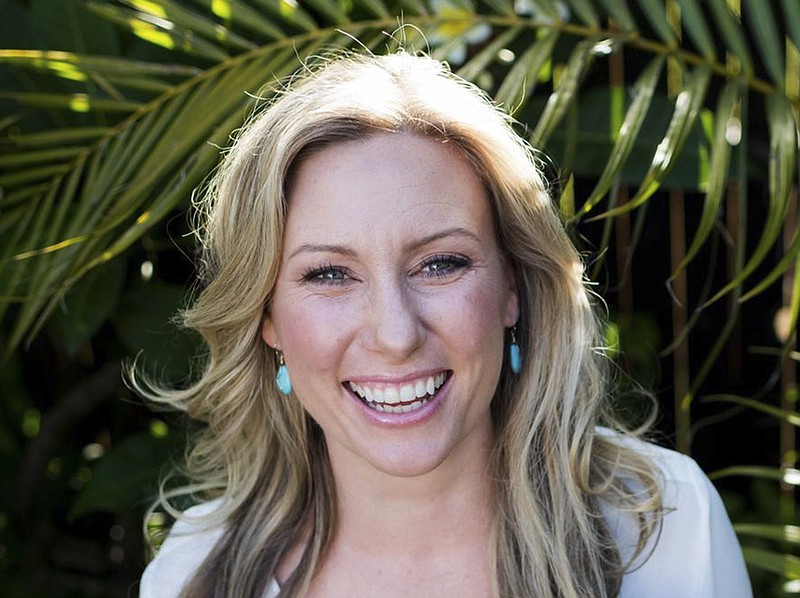MINNEAPOLIS (AP) - An Australian woman who heard what she thought was a sexual assault behind her home called 911 not once but twice before she was fatally shot, concerned officers had the wrong address when no one immediately responded.
Minutes later, Justine Damond lay dying in her Minneapolis neighborhood, shot in the abdomen by one of the responding officers when she approached their squad car.
The revelation of a second 911 call came in the city's release of transcripts of Damond's emergency calls, as well as a handful of other initial reports. The city has turned the investigation of Damond's death over to the state's Bureau of Criminal Apprehension.
Damond, 40, a spiritual healer and life coach who was due to be married in August, was shot by Officer Mohamed Noor. He has declined to be interviewed by the bureau and hasn't responded to media interview requests. His partner, Matthew Harrity, told investigators he heard a loud sound right before Damond approached Harrity on the driver's side of the car.
Noor fired from the passenger seat.
In Damond's first 911 call at 11:27 p.m., she told the dispatcher she could hear someone in back of her house. "I'm not sure if she's having sex or being raped," she said. She said she thought the person had yelled "help" and added: "I don't think she's enjoying it" and said the person seemed "distressed."
Eight minutes later, Damond called again to say no officers had arrived. She said she was concerned they had the wrong address and gave it again. Assured officers were on the way, she thanked the dispatcher and ended the call.
Harrity was interviewed Tuesday. The bureau said Noor's attorney didn't say when or if Noor would talk to investigators, and under the law an interview can't be compelled.
Harrity and Noor are on paid administrative leave. Harrity has been with the Minneapolis police department for one year, and Noor has been with the department for nearly two.
According to the bureau, Harrity told investigators he and Noor responded to a 911 call from Damond about a possible assault near her home at about 11:30 p.m. Saturday.
Harrity was driving the squad car as the officers went through an alley to look for a suspect. The squad lights were off when the noise startled him, Harrity said.
No weapon was found at the scene. The officers did not turn on their body cameras until after the shooting, and the squad car camera was also not activated.
Harrity told investigators after the shooting, the officers got out of their vehicle and gave Damond immediate medical attention.
Harrity said he and Noor saw a man, estimated to be 18-25 years old, bicycling in the area before the shooting. That man stopped and watched as officers attended to Damond. Bureau agents are asking that man, and any other potential witnesses, to come forward.
The criminal bureau said unless more people come forward, there are no additional interviews scheduled.
David Klinger, a criminal justice professor at the University of Missouri-St. Louis, said police officers can't be compelled to testify in an outside investigation.
"Police officers are citizens they have the same Fifth Amendment right as anyone. They don't have to give a statement," Klinger said. "His lawyer might be saying, you're not going to talk until I feel you're rested and not under stress."
In a news conference after the Bureau of Criminal Apprehension update, Mayor Betsy Hodges said she wished Noor would speak to investigators.
"It's frustrating to have some of the picture but not all of it," she said. "We cannot compel Officer Noor to make a statement. I wish we could. I wish that he would make a statement."
Assistant Chief Medaria Arradondo said the department is reviewing its policy on body cameras and was doing so before Damond's death. Arradondo said the department is just eight months into a department-wide rollout, and the review includes focusing on how often officers activate them. He said the department wants to increase that frequency.

